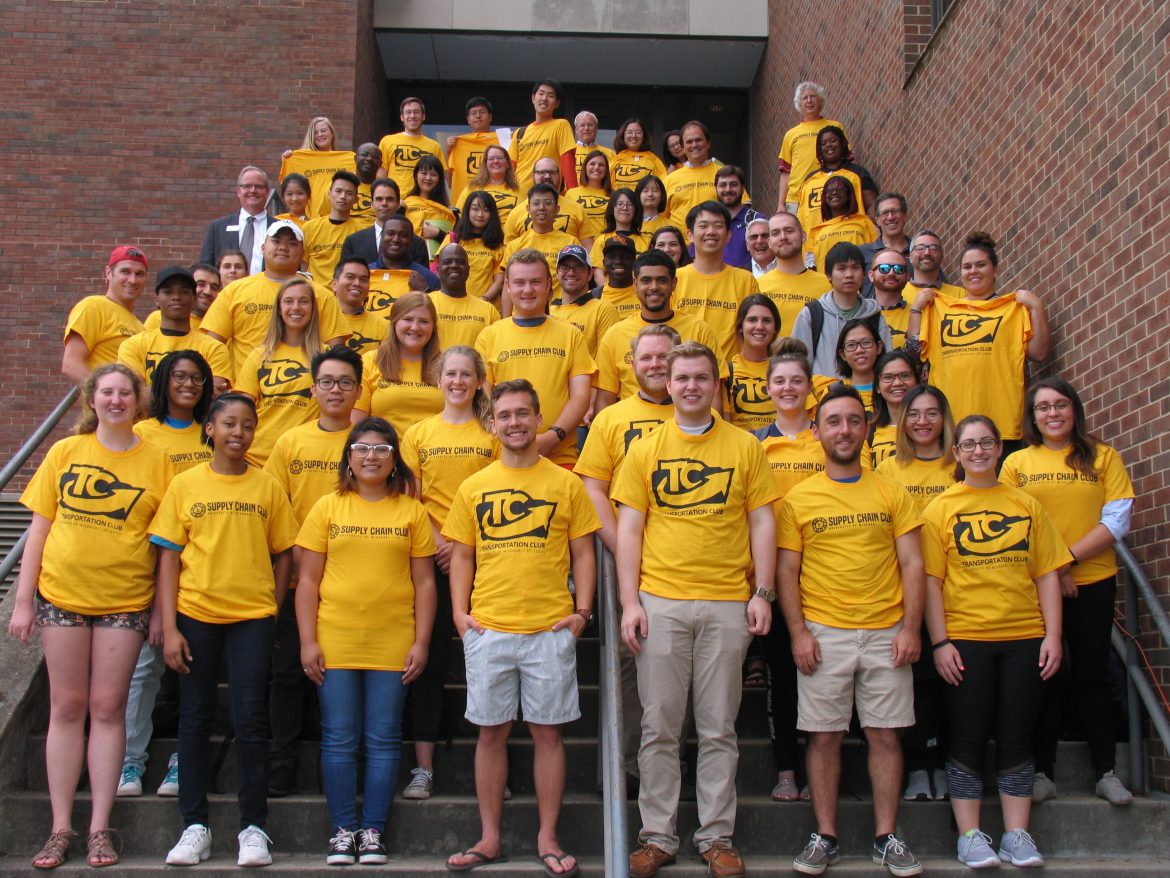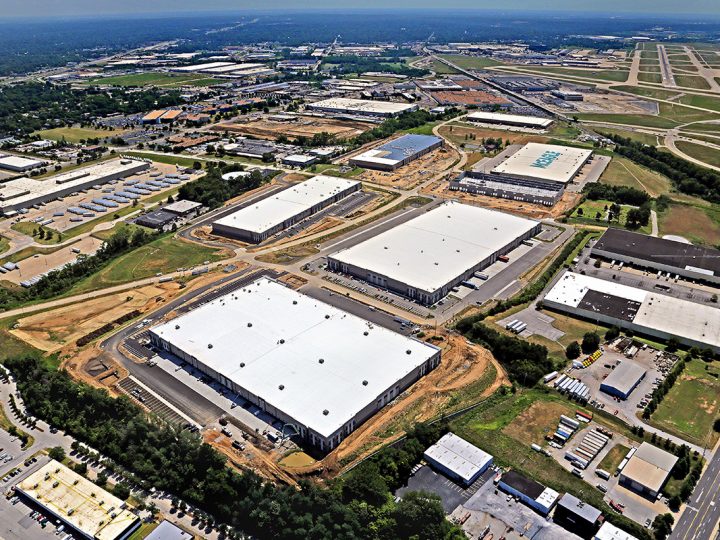
The vital role of the national and global supply chain has remained constant this year during all the challenges created by the COVID-19 pandemic, as well as the importance and value of those essential workers within it. With expectations high that supply chains are going to shorten as many U.S. companies look to re-shore operations, the demand for supply chain talent in the St. Louis region will only increase. And the demand will likely be even greater in areas like the St. Louis region that are all already established as distribution and logistics hubs and key targets for additional growth. Fortunately, efforts to grow the supply chain workforce in the eastern Missouri and southwestern Illinois bi-state area are already well underway.
Those efforts are being led by a public-private partnership that is bringing together senior leaders in academia, private industry and economic development to help create the talent pipeline to fill current and future supply chain positions. The collaboration is focused on attracting individuals into supply chain related degree programs with relevant curriculums, pairing the participating students with industry professionals for mentoring and networking opportunities, and ultimately, connecting them to well-paying jobs in a growing field with tremendous potential.
The University of Missouri-St. Louis (UMSL) is playing a key role through its supply chain management degree offerings and associated Supply Chain & Analytics Advisory Board, which helps ensure both students and faculty are connected to the region’s business sector. Mitch Millstein, Ph.D., Assistant Teaching Professor and Associate Center Director at UMSL, has been engaged in the regional effort for five years and helped launch the advisory board.
“We were very focused on creating an advisory board that would contribute to student engagement and student preparedness,” said Millstein. While the board includes representatives from big names, such as Boeing and Bunge, he said they deliberately sought out members from mid-sized companies, non-profits like the St. Louis Area Foodbank and organizations like the St. Louis Regional Freightway. “We wanted locally grown companies that are going to hire our students,” Millstein added.
Through a Curriculum Enhancement Subcommittee, advisory board members have served as thought partners to help update the curriculum for the undergraduate and graduate level supply chain degree programs – making them better for employers and students. Traditional calculus and statistics classes have been replaced with courses that are more analytical, with the goal being for students not worry about the math, but rather to focus on the application, better preparing them for work in the field.
The Student Engagement Subcommittee helps students master things they need to learn that you cannot learn in the classroom. Topics range from networking and how to dress for a meeting, to how to present yourself and what to expect the first day on the job.
The Mentoring Program is one students can opt in for to get paired with a board member who signs up to mentor them for a year, often creating relationships that last far longer. Mary Lamie is Executive Vice President of Multi Modal Enterprises for Bi-State Development and Executive Director of the St. Louis Regional Freightway, which is focused on growing the $6 billion in freight that moves through the St. Lois region and enhancing the infrastructure it moves on. She been on UMSL’s advisory committee for several years, during which she has had the opportunity to mentor two students.
“During more than two decades at the Illinois Department at Transportation, I was fortunate to have many great mentors. Not only did they provide guidance and encouragement, but they also were champions to promote my skills, abilities and interest in assuming additional responsibilities,” said Lamie. ”I’m grateful for their support and have made it a priority to provide the same support to others. Mentoring students is a great way to do that and impact those who are in line to be the next generation of supply chain leaders.”
UniGroup, a $1.7 billion transportation and logistics company headquartered in St. Louis, also has had a representative on the advisory board for several years. The current representative is Megan Piechowski, Vice President of Human Resources.
“We have hired graduates of these programs here at UniGroup, and I have generally been impressed with the output of UMSL throughout my years in HR,” Piechowski said.
She added that the company has some new business in the pipeline that they expect to start serving next year, which means they will be looking to add to their existing headcount of 800 employees, hiring entry level professionals who can grow with the company. Among the particular traits she looks for when hiring are data-driven decision-making skills, the ability to analyze problems and synthesize data and the capacity to conceptualize something from beginning to end. It’s also important that potential hires be able to work collaboratively as a contributing team member.
“We do well sourcing and staffing in the St. Louis market,” said Piechowski. “Over time, the roles have become more sophisticated and technology driven, and there is continued pressure to make sure that the workforce is meeting the needs of the companies that are hiring. UMSL is staying up to date. Being on the board is a great way to help shape what the future looks like for future students who will hopefully become employees over time.”
Millstein noted UniGroup is not alone in looking to UMSL when hiring. “The university is one of the top 20 providers of talent for Boeing,” said Millstein. “They like what the students know and that they are willing to work.”
Save A Lot is another local company that has hired directly out of UMSL’s program. Among its hires are one of the students Lamie mentored, and most recently, one of her key team members.
Evan Glantz became Lamie’s Senior Administrative Assistant at the St. Louis Regional Freightway in 2017, and she took an interest in his professional development as he pursued his master’s degree at UMSL with an emphasis in Logistics and Supply Chain Management. He got to know team members at Save A Lot through the advisory board, and during a project they partnered on with the St. Louis Regional Freightway earlier this year. The connections helped open the door that led to Glantz landing a position with the grocery chain as a Distribution Specialist, where his role focuses on managing the inbound transportation spending and scheduling for the company’s 14 distribution centers. While he says it was an ideal next step in his career, it is just one of many types of positions available for those graduating from UMSL’s program.
“Supply chain is huge! From distribution and procurement to reverse logistics, there are so many different elements that comprise the supply chain,” said Glantz. “The career opportunities are endless.”
Those opportunities are likely contributing to the enrollment growth UMSL is seeing in its supply chain degree programs, a trend that Millstein wants to see continue. To learn more, visit http://www.umsl.edu/divisions/business/supplychain/index.html.




